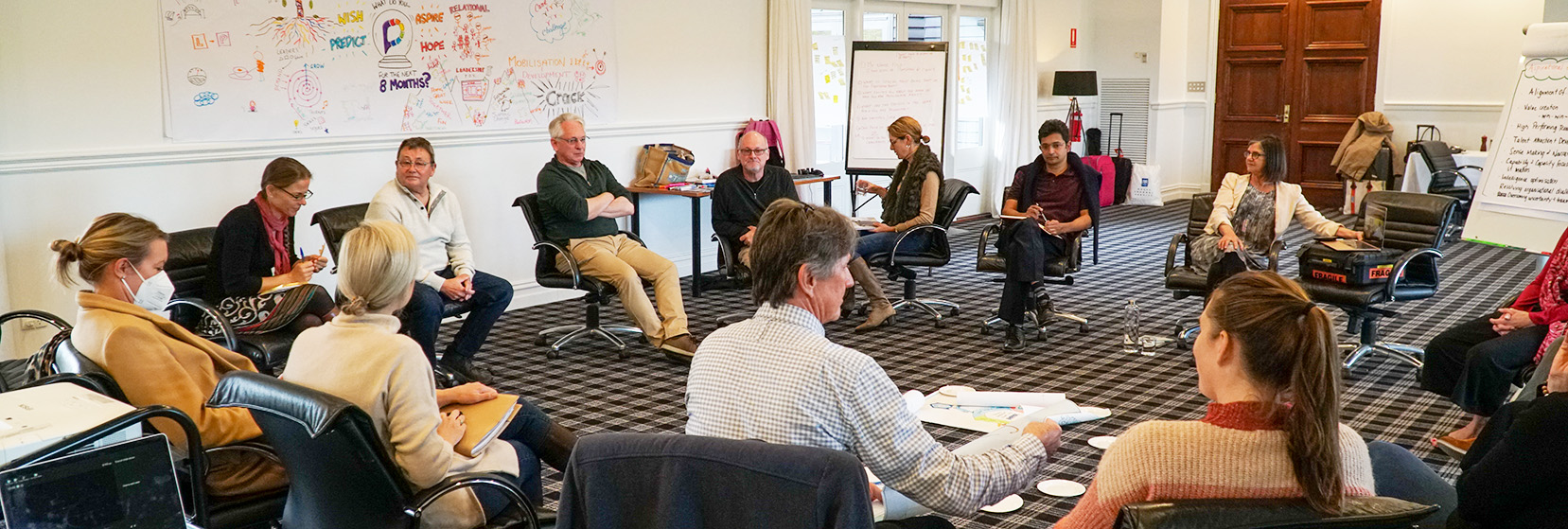
30 Mar Is humility the unsung ‘hero’ of leadership?
I recently spent time with a CEO in a workshop where he started his discussion on how to lead change with stories about his own failures (and resulting learning) in implementing change. In that moment, he turned a ‘let me tell you how to do it’ one-way presentation into a dialogue about the collective challenge of leading change. His humility and willingness to be vulnerable made it clear that management doesn’t have all the answers, but that leaders at all levels are stewards of the change; are bound to make mistakes; need to keep learning from each other and need each other and the rest of the organisation’s support to successfully navigate the challenges ahead.
In a related experience last year, colleague David Romano and I facilitated an ‘end-of-an-era’ event for a division of a business. A large group of leaders across the organisation gathered, expecting to listen to the most senior leader as the ‘sage on the stage’ providing answers and details about the way ahead. What they got instead were a group of senior leaders humbly sharing what they know, what they didn’t know yet and what they needed from all leaders to help them chart a course into the future. We noticed how the questions that delegates had written down in preparation for the meeting in an effort to ‘demand answers’ were set aside in favour of questions on how they could contribute to shaping the new entity and support the senior leadership team and suggestions for ways to integrate their new business partners in an empathetic and inclusive way.
I am also reminded of a time when a few of my colleagues at PiqueGlobal and I supported an organisation who had just merged with a global player in their industry. On the morning that the news broke, one of the senior leaders sat down with front-line leaders and humbly admitted that although he was part of the negotiations and a strong advocate for the merger, the enormity of it left him feeling anxious. This made room for members of the group to share their hopes and concerns about the changes ahead. It enabled them to explore what the new reality may mean for them personally and how they could support each other and their teams as they embarked on an exciting, but at times scary endeavour as a leadership community.
Reflecting on these experiences reminded me of the power of humility in a world where self-promotion and bravado is often confused with self-confidence. It takes courage and strength, but when leaders are humble enough to talk about their failures; to admit when they don’t know or where they need help; it creates an opportunity for others to step up and to navigate the challenges ahead as a supportive leadership community.
I found the following article https://www.forbes.com/sites/jeffhyman/2018/10/31/humility/?sh=6e1ef2421c80 helpful in clarifying what genuine humility is and what it is not (false modesty, a lack of self-confidence or weakness) and why it is so powerful. It points to the findings of Jim Collins in his book, Good to Great that “two common traits of CEOs in companies that transitioned from average to superior market performance (are) humility and an indomitable will to advance the cause of the organization”.
Written by Yda Gray
Senior Consultant,
PiqueGlobal

